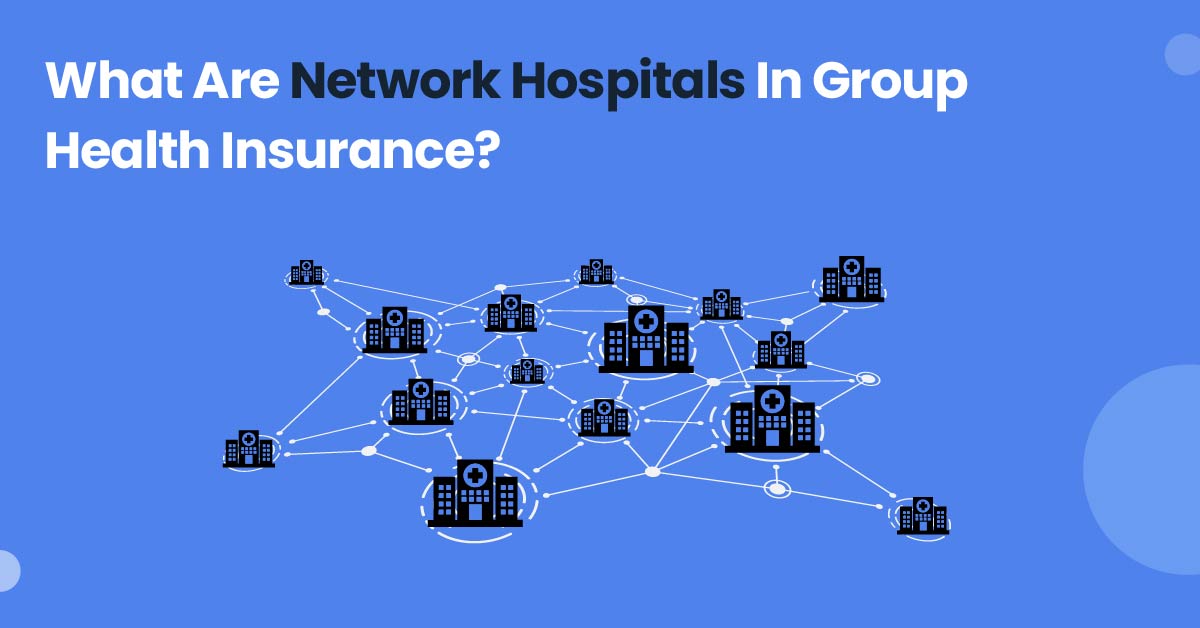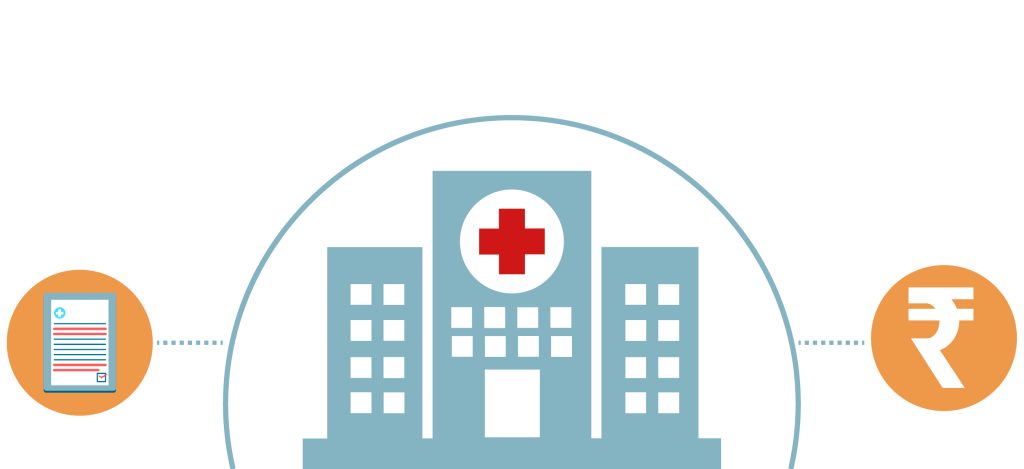
In the world of health insurance, network hospitals play a crucial role in determining the cost and quality of medical care for policyholders. Network hospitals are the hospitals listed in the insurance agreement when obtaining coverage from the insurance company. They allow policyholders to receive cashless treatment, provided the policy’s terms and conditions are met.
The goal of network hospitals in health insurance is to provide policyholders with access to quality, affordable medical care. By working with a network of healthcare facilities, health insurance companies can negotiate lower costs for medical treatments and procedures, which are then passed on to policyholders in the form of lower healthcare costs. This makes it easier for policyholders to receive the care they need without breaking the bank.
What are the advantages of network hospitals?
- Wider Range of Services and Providers: Network hospitals provide patients with access to a broader range of healthcare services and providers. This allows patients to find the right provider for their specific needs and receive a wider range of treatments and procedures.
- Improved Continuity of Care: Network hospitals ensure improved continuity of care for patients. When patients receive care at a network hospital, their medical records and treatment plans are easily accessible to all providers in the network, ensuring that they receive consistent, high-quality care, regardless of which facility they visit.
- Lower Healthcare Costs: Network hospitals often offer lower healthcare costs due to negotiated rates with insurance providers. This can help make medical treatment more affordable for patients and reduce financial stress.
- Access to Specialists and Advanced Treatments: Network hospitals provide increased access to specialists and advanced medical treatments. With a larger pool of healthcare professionals and specialists, patients have a better chance of finding the right provider for their needs.
- Simplified Insurance Coverage and Claims Process: Network hospitals simplify the insurance coverage and claims process for patients. With a network hospital, patients can receive care and file claims with the peace of mind that their insurance will cover the costs.
- Cashless Treatment: Network hospitals allow patients to receive cashless treatment if their insurance policyAn insurance policy is a legally binding contract between an insurance company (insurer) and an individual or business (policyholder). It More covers the costs. This eliminates the need for patients to pay for treatment out-of-pocket and reduces financial stress.
One of the most significant benefits of network hospitals in health insurance is the increased access to specialists and advanced medical treatments. By partnering with a wide range of healthcare facilities, health insurance companies can offer their policyholders access to a larger pool of healthcare professionals and specialists, increasing their chances of finding a provider that fits their specific needs.
However, it’s important to note that there may be some restrictions associated with network hospitals in health insurance. For example, some health insurance policies may only cover medical treatments and procedures that are performed at network hospitals. Additionally, some policies may require policyholders to receive a referral from their primary care physician before seeing a specialist at a network hospital.
How can you file for a cashless claim in a network hospital?
To file a cashless claim in a network hospital, you can follow these steps:
- Choose a Network Hospital: Make sure the hospital you choose is part of your insurance company’s network of providers.
- Get a referral from your doctor: If required, obtain a referral from your primary care doctor to visit a specialist at the network hospital.
- Inform the hospital: When you arrive at the network hospital, inform the hospital that you have insurance and wish to file a cashless claim.
- Provide Insurance Details: Provide the hospital with your insurance details, including your policyAn insurance policy is a legally binding contract between an insurance company (insurer) and an individual or business (policyholder). It More number, insurance company name, and contact information.
- Submit Claim Request: The hospital will then submit a pre-authorization request to your insurance company on your behalf. This request outlines the medical treatment you need and the estimated costs.
- Approval or Rejection of Claim: The insurance company will review the pre-authorization request and approve or reject the claim. If the claim is approved, the hospital will proceed with the treatment, and the insurance company will cover the costs.
- Pay Any Out-of-Pocket Costs: If the claim is partially approved, you may need to pay any out-of-pocket costs not covered by your insurance policyAn insurance policy is a legally binding contract between an insurance company (insurer) and an individual or business (policyholder). It More.
- Retain all receipts and documents: Make sure to keep all receipts, bills, and other related documents for future reference and for submitting the claim with the insurance company after the treatment is completed.
It’s important to keep in mind that the process for filing a cashless claim may vary depending on the insurance company and policyAn insurance policy is a legally binding contract between an insurance company (insurer) and an individual or business (policyholder). It More. It’s best to check with your insurance provider for more information on their specific cashless claim process.
How to select the right network hospital?
Here are some factors to consider when selecting the right network hospital:
- Location: Choose a network hospital that is located conveniently for you, so that you can easily access it if you need medical treatment.
- Quality of Care: Look for a network hospital that has a good reputation for quality of care and patient satisfaction. You can check online reviews and ratings or ask for recommendations from friends and family.
- Range of Services: Choose a network hospital that offers a wide range of medical services, so that you can receive all the treatments and procedures you need in one place.
- Availability of Specialists: Consider a network hospital that has a good selection of specialists, especially if you need specialized medical treatment.
- Insurance Coverage: Make sure the network hospital you choose is covered by your insurance policyAn insurance policy is a legally binding contract between an insurance company (insurer) and an individual or business (policyholder). It More, so that you can receive cashless treatment.
- Hospital Infrastructure: Check the network hospital’s infrastructure and facilities, including the availability of modern equipment and technology, to ensure you receive high-quality medical care.
- Cost: Consider the cost of treatment at the network hospital, especially if you need to pay out-of-pocket costs. Compare the costs at different network hospitals and choose the one that provides the best value for money.
By considering these factors, you can select the right network hospital for your medical needs, so you can receive high-quality medical care with the peace of mind that your insurance will cover the costs.
What are non-network hospitals in health insurance?
Non-network hospitals in health insurance are hospitals that are not part of an insurance company’s network of providers. When you receive medical treatment at a non-network hospital, your insurance company may not cover the costs, or you may have to pay a higher portion of the medical bill. The amount of coverage provided by the insurance policyAn insurance policy is a legally binding contract between an insurance company (insurer) and an individual or business (policyholder). It More may also be lower for treatment received at a non-network hospital.
It’s important to note that if you choose to receive medical treatment at a non-network hospital, you may have to pay the medical bills out-of-pocket and then claim reimbursement from the insurance company. The reimbursement process may take longer, and there may be restrictions or limits on the amount of coverage provided by the insurance policyAn insurance policy is a legally binding contract between an insurance company (insurer) and an individual or business (policyholder). It More.
Network hospitals and non-network hospitals differ in several key ways:

- Insurance Coverage: Non-network hospitals are hospitals that are not part of an insurance company’s network, and you may have to pay out-of-pocket costs or a higher portion of the medical bill when you receive treatment at these hospitals.
- Cost: The cost of medical treatment at network hospitals is typically lower compared to non-network hospitals, as insurance companies negotiate lower rates with network hospitals. At non-network hospitals, you may have to pay higher costs, and these costs may not be covered by your insurance policyAn insurance policy is a legally binding contract between an insurance company (insurer) and an individual or business (policyholder). It More.
- Quality of Care: Network hospitals are usually carefully selected by insurance companies based on factors such as quality of care, patient satisfaction, and cost. As a result, network hospitals typically provide high-quality medical care. Non-network hospitals may vary in the quality of care they provide, and it’s important to research the hospital and its reputation before choosing to receive medical treatment there.
- Convenience: Network hospitals are often more convenient for patients as they are located in accessible locations and offer a wide range of medical services. Non-network hospitals may be located in more remote areas and may not offer the same range of services as network hospitals.
- Cashless Treatment: Network hospitals offer cashless treatment, meaning you do not have to pay the medical bills at the time of treatment. The insurance company will directly pay the hospital. This is not the case with non-network hospitals, where you may have to pay out-of-pocket and then claim reimbursement from the insurance company.
By considering these differences, you can make an informed decision about whether to choose a network or non-network hospital for your medical needs.
Therefore, it’s important to consider the cost, quality of care, and convenience of non-network hospitals before choosing to receive medical treatment there. It’s also a good idea to research the hospital and its reputation, and to understand the terms and conditions of your insurance policyAn insurance policy is a legally binding contract between an insurance company (insurer) and an individual or business (policyholder). It More, so that you know what to expect in terms of coverage and costs.
In conclusion, network hospitals in health insurance play a crucial role in determining the cost and quality of medical care for policyholders. By providing access to quality, affordable medical care and improving the continuity of care, network hospitals help policyholders get the care they need when they need it. Before choosing a health insurance policyAn insurance policy is a legally binding contract between an insurance company (insurer) and an individual or business (policyholder). It More, it’s important to understand the network of hospitals available and ensure that it meets your healthcare needs.
